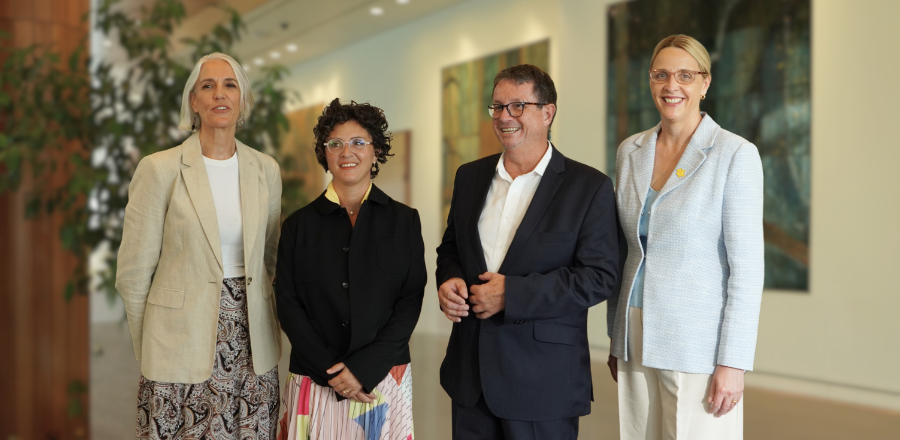Rethink Sugary Drink Alliance launch - Parliament House doorstop
Transcript: Parliament House doorstop AMA President, Professor Stephen Robson, Cancer Council Australia's CEO, Professor Tanya Buchanan, Australian Dental Association Board Director, Dr Angie Nilsson, Executive Manager of Food for Health Alliance, Jane Martin
Subject: Public health leaders unite to call for health levy on sugary drinks

STEVE ROBSON: I'm Steve Robson, Federal President of the Australian Medical Association, and I'm here today with my colleagues from the Rethink Sugary Drink Alliance to launch our call on the government to institute a 20 per cent levy on the manufacturers of sugary drinks. Sugary drinks have little to no nutritional value at all. They don't fill you up. If you drink a sugary drink, you're not full and you're go on and keep eating. The consequences of sugar consumption in Australia are extraordinary. We have high rates and increasing rates of chronic disease, of obesity, of type two diabetes, and with those, heart disease, chronic tooth disease and decay, and stroke, as well as cancer.
So all of these things could be addressed by sending a signal to Australians about making a healthy choice. We believe in a model that a 20 per cent levy on the manufacturers of sugary drinks will give people a signal and direct them to drink healthy drinks. We believe that if the same outcomes occur as we've seen around the world that it could reduce individual sugar consumption by more than 2.5 kilos for every Australian every year. That would have massive dramatic effects and improve stuff over time. As one example, it's likely that if a levy like this would prevent half a million episodes of tooth decay over the following decade as well as having effects on rates of cancer, diabetes and other serious long-term diseases.
Importantly, a levy like this is likely to raise as much as $1 billion a year. And in a time in which health budgets are seriously constrained, it would be a massive injection of funding to other preventive health measures around this country. The World Health Organisation has called for all countries to have a levy like this, and the evidence from over 100 other countries, such as the UK, is that it works and has effects. We believe it's high time the Australian Government followed the advice, looked at what's happening overseas and made this choice, so we strongly support it.
I'm going to hand to my colleague Tanya Buchanan from Cancer Council Australia.
TANYA BUCHANAN: Hi everyone. My name is Tanya Buchanan. I'm the CEO at Cancer Council Australia, and we know that too much sugar in our diets can lead to weight gain and to obesity. And unfortunately, obesity is a risk factor in 13 different types of cancer. With nearly two in three Australians currently above a healthy weight, and with our rates of obesity related cancer on the rise, this is a really important policy because it encourages manufacturers to reduce the amount of sugar in their products, and that results in healthier outcomes for all Australians. I'm just going to hand over now to my colleague, Doctor Angie Nilsson from the Australian Dental Association.
ANGIE NILSSON: Thank you, Tanya. Just one bottle of 600 mls soft drink can contain 16 teaspoons of sugar and cause acidity to teeth. Soft drinks can damage teeth causing cavities, erosion and sensitivity. In Mexico, when a health levy was introduced, the clinicians were seeing less people coming in with cavities. Tooth decay is still Australia's most common preventable chronic disease in both children and adults. A health levy in Australia can prevent dental decay by half a million cases within ten years. I'd like to pass over to Jane Martin, Executive Manager of Food for Health Alliance.
JANE MARTIN: Thank you. Jane Martin, Executive Manager, Food for Health Alliance. This is a policy that's been implemented in more than 100 countries. Half the world's population have a health levy on manufacturers of sugary drinks. This is a no brainer for the Australian Government —77 per cent of Australians support this policy if the funds are invested in obesity prevention, so this is an economic bonus. It will encourage people to shift to healthier drinks and it will support the government to fund important prevention activities to improve the health of all Australians.



